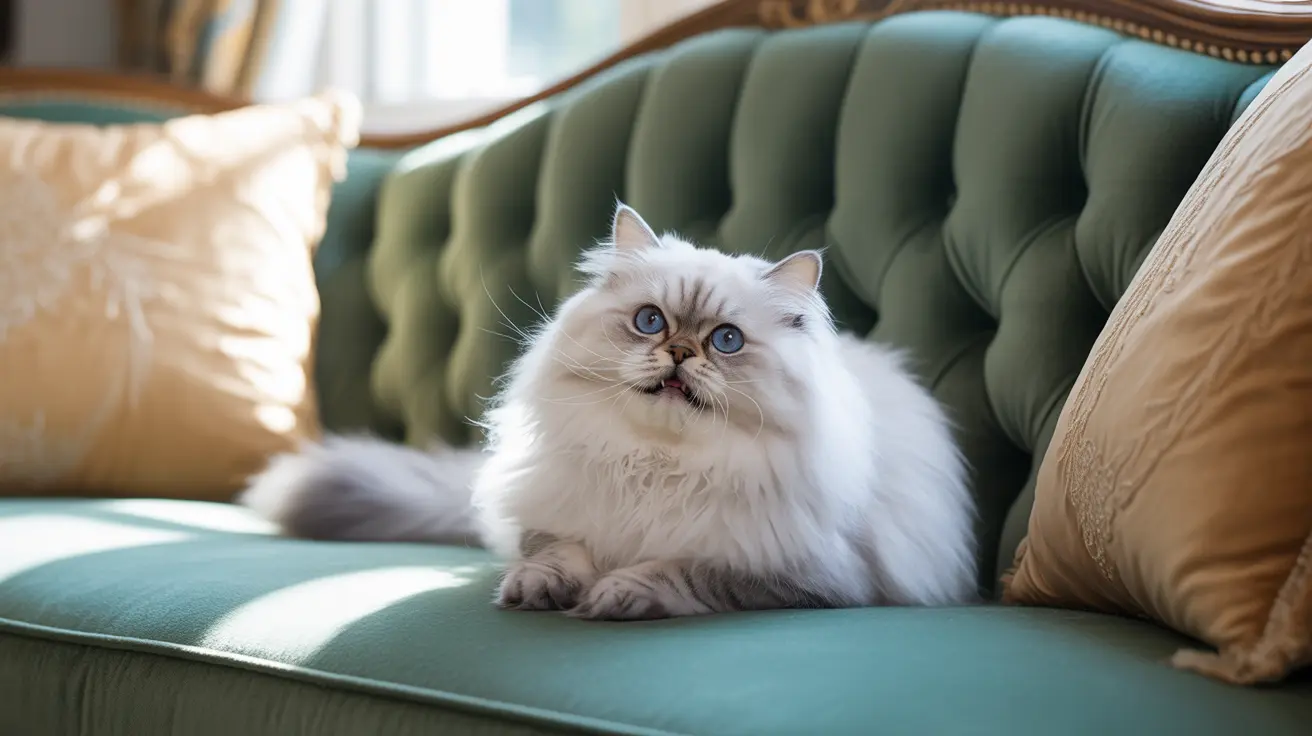What Exactly Is a Cat Blep?
A cat blep occurs when a cat leaves their tongue slightly protruding from their mouth, usually unconsciously. Unlike panting or deliberate tongue movements, blepping typically happens when cats are relaxed, distracted, or engaged in specific behaviors like scent investigation.
This endearing behavior has become so popular on social media that "blep" has evolved into a widely recognized term among pet owners and animal enthusiasts worldwide.
Common Reasons Why Cats Blep
Natural Instincts and Behaviors
Cats often blep during or after using their Jacobson's organ (also called the vomeronasal organ) to analyze scents in their environment. When cats encounter an interesting smell, they may leave their tongue out momentarily as they process the sensory information.
Relaxation and Contentment
Many cats blep when they're in a state of complete relaxation. During deep sleep or intense purring sessions, their facial muscles relax, sometimes causing their tongue to slip out unnoticed.
Medical Considerations Behind Blepping
Dental and Oral Health
While most blepping is harmless, frequent or persistent tongue protrusion might indicate underlying dental issues. Missing teeth, particularly front incisors, can create space for the tongue to slip through more easily.
Anatomical Factors
Brachycephalic (flat-faced) cat breeds are more prone to blepping due to their unique facial structure. Their shortened muzzles and modified jaw alignment can make it more challenging to keep their tongues fully contained.
When to Be Concerned About Blepping
Although blepping is typically harmless, certain situations warrant veterinary attention. Watch for:
- Excessive drooling accompanying the blep
- Changes in eating habits or difficulty chewing
- Signs of oral pain or discomfort
- Sudden increases in blepping frequency
- Accompanying respiratory issues
Frequently Asked Questions
What does it mean when my cat bleps and sticks its tongue out briefly?
Brief blepping is usually normal behavior related to relaxation, scent analysis, or momentary distraction. If it's occasional and your cat appears healthy otherwise, there's typically no cause for concern.
Why do some cats blep more often than others?
Blepping frequency can vary due to factors like breed (flat-faced cats blep more), dental health, individual personality, and environmental stimuli. Some cats may also learn that blepping attracts positive attention from their owners.
Could frequent blepping be a sign of dental or health problems in cats?
Yes, excessive blepping could indicate dental issues, oral pain, or other health concerns. If you notice a sudden increase in blepping frequency or other concerning symptoms, consult your veterinarian.
Are certain cat breeds more prone to blepping due to their anatomy?
Yes, brachycephalic (flat-faced) breeds like Persians and Himalayans are more likely to blep due to their shortened facial structure and modified jaw alignment.
When should I take my cat to the vet because of blepping behavior?
Seek veterinary care if blepping is accompanied by drooling, difficulty eating, behavioral changes, or signs of discomfort. Also consult a vet if there's a sudden increase in blepping frequency.
Conclusion
While cat blepping is often nothing more than an adorable quirk of feline behavior, understanding its various causes helps ensure your cat's health and well-being. Keep monitoring your cat's blepping patterns, and don't hesitate to consult a veterinarian if you notice concerning changes in this or other behaviors.






